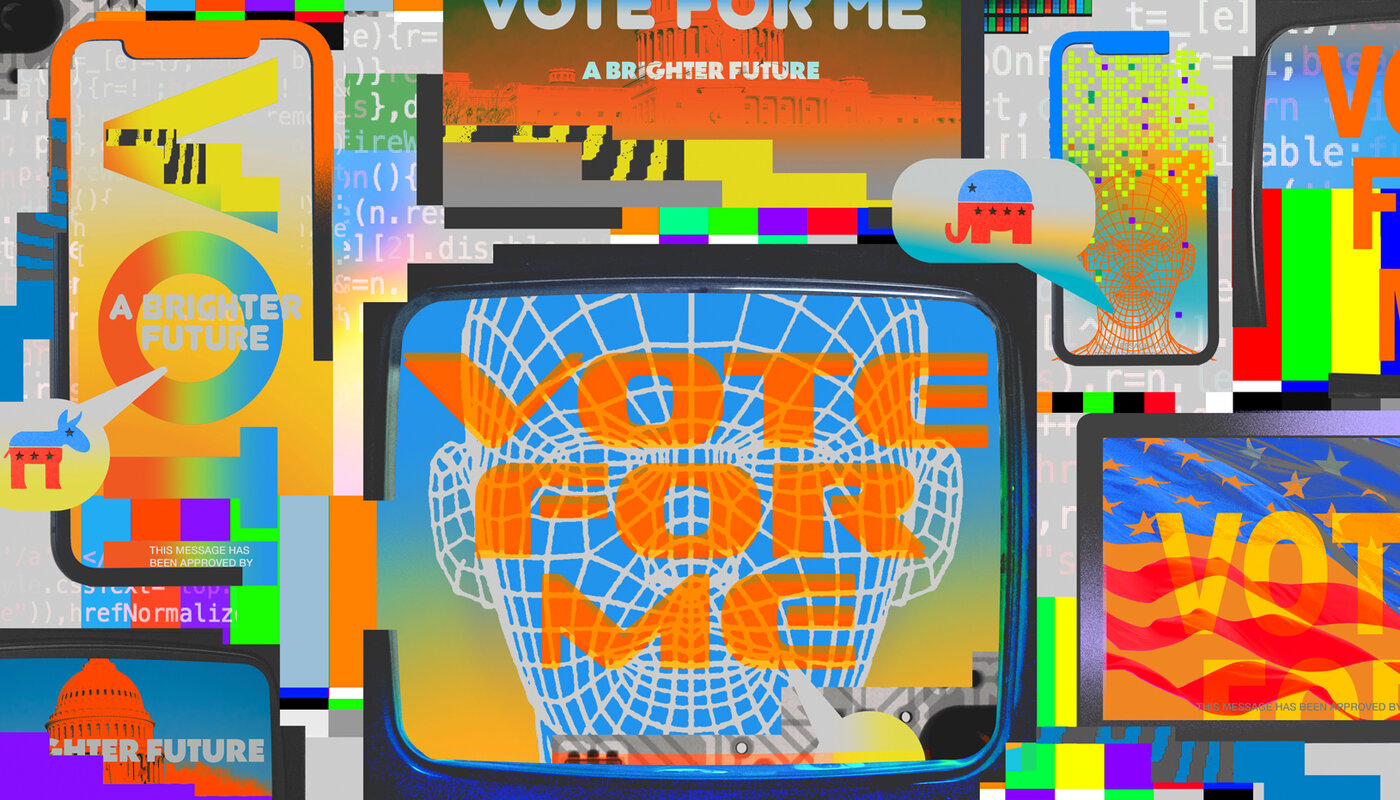Generative AI in Political Advertising
| Cover |  |
|---|---|
| Short description | Opportunities and pitfalls for political campaigns. |
| Website | https://www.brennancenter.org/our-work/research-reports/generative-ai-political-advertising |
| Tags | AIPolitical Campaigns |
| For | Brennan Center for Justice |
| Year | 2023 |
TL;DR
In the lead-up to the 2024 U.S. elections, political campaigns are turning to artificial intelligence (AI) to help shape their messages. AI-powered tools can generate text, images, and video from a single prompt to create personalized advertising at scale. But while these tools may offer cost-effective solutions for campaigns, they also pose certain risks. I outline some of the potential opportunities and pitfalls of AI for political campaigns below.
Opportunities of AI:
- Targeting Specific Audiences: AI enables campaigns to create personalized messages for a diverse array of voter groups, addressing the specific concerns and interests of each one.
- Improving Ad Effectiveness: AI's ability to synthesize information and generate persuasive messages tailored to different audiences holds promise for microtargeting efforts and for engaging voters effectively.
- Empowering Less-Resourced Campaigns: Inexpensive AI tools require minimal training and can generate vast amounts of content, reducing the need for large digital teams and leveling the playing field for campaigns with limited resources.
Pitfalls of AI:
- Falsehoods and Empty Promises: AI's capacity to generate false or misleading content poses a significant risk to the democratic process, necessitating the establishment of robust detection systems.
- Unsupervised Content Generation: Even for campaigns with good intentions, AI can produce unoriginal, biased, or inaccurate messages, requiring campaigns to exercise caution and monitor the accuracy of AI-generated content.
- Blurring Core Messaging: AI tools lack internal consistency like human teams. AI-generated content may emphasize different topics or stances for various voter groups, potentially causing confusion and diluting a campaign's core message.
- Biases Inherent in AI Systems: AI, trained on historical data, may inherit biases present in human-generated data, leading to the generation of content that reflects biases, such as racist or sexist messages.
- Ignorance of Certain Topics: AI tools may struggle to formulate arguments on less-discussed political issues, highlighting a deficiency in handling nuance and potentially limiting campaigns' ability to address diverse topics effectively.
- Generic Language: AI-generated political ads may lack originality, featuring generic statements and repetitive language, potentially struggling to capture and maintain voters' attention.
To mitigate these risks, campaigns must exercise caution, ensuring AI-generated content remains accurate and aligns with their messaging goals. Detection systems for manipulated content are urgently needed, given the possibility of misinformation dissemination. Market forces may also offer a long-term solution in addressing some of these challenges: Advertising platforms, driven by the need to engage users and deliver effective ads, may evolve to reward more appealing content.